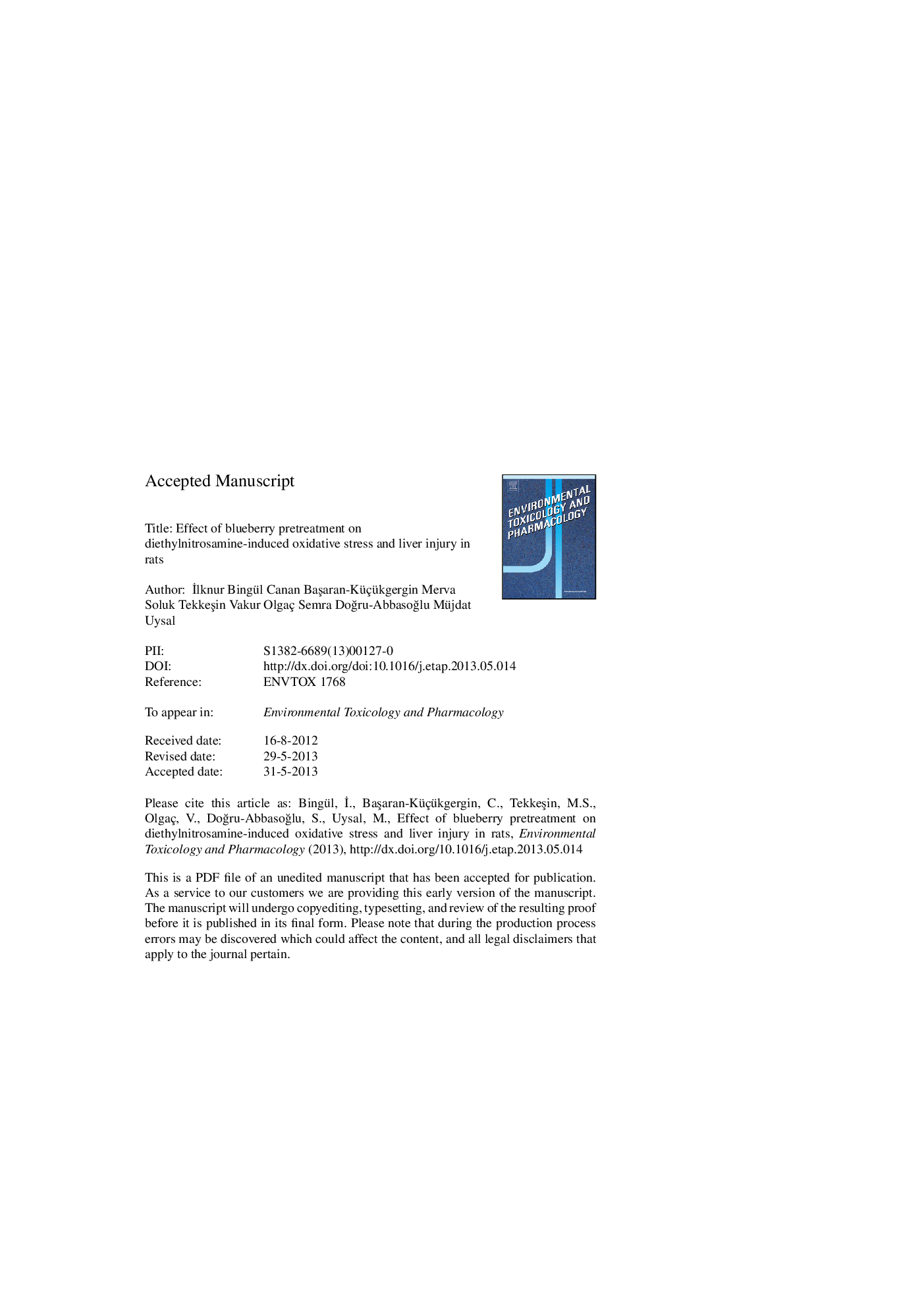| Article ID | Journal | Published Year | Pages | File Type |
|---|---|---|---|---|
| 5848944 | Environmental Toxicology and Pharmacology | 2013 | 25 Pages |
Abstract
Diethylnitrosamine (DEN) treatment increases the generation of reactive oxygen species (ROS), apoptosis, necrosis and proliferation in the liver. Blueberries (BB; Vaccinium corymbosum L.) contain polyphenols and other active components and have high antioxidant capacities. We investigated the effect of BB pretreatment on DEN-induced liver injury and oxidative and nitrosative stress in male rats. Rats were fed with 5% and 10% BB containing diet for six weeks and DEN (200Â mg/kg; i.p.) was applied two days before the end of this period. Liver function tests were determined in serum and histopathological evaluation was performed in the liver tissue. Apoptosis-related proteins, Bax and B cell lymphoma-2 (Bcl-2) and proliferating cell nuclear antigen (PCNA) expressions were also examined. Oxidative and nitrosative stress were evaluated in the liver by measuring thiobarbituric acid reactive substances, diene conjugate, protein carbonyl and nitrotyrosine levels, and glutathione levels and glutathione peroxidase, superoxide dismutase and glutathione transferase (GST) activities. Pretreatment with high dose of BB reduced apoptotic, necrotic and proliferative changes in the liver induced by DEN. Dietary BB also decreased hepatic lipid peroxidation, protein oxidation and nitrotyrosine levels together with increased GST activity. In conclusion, BB may have an inhibiting effect on acute liver injury by reducing apoptosis, necrosis, proliferation, oxidative and nitrosative stress in DEN-treated rats.
Related Topics
Life Sciences
Environmental Science
Health, Toxicology and Mutagenesis
Authors
Ä°lknur Bingül, Canan BaÅaran-Küçükgergin, Merva Soluk TekkeÅin, Vakur Olgaç, Semra DoÄru-AbbasoÄlu, Müjdat Uysal,
